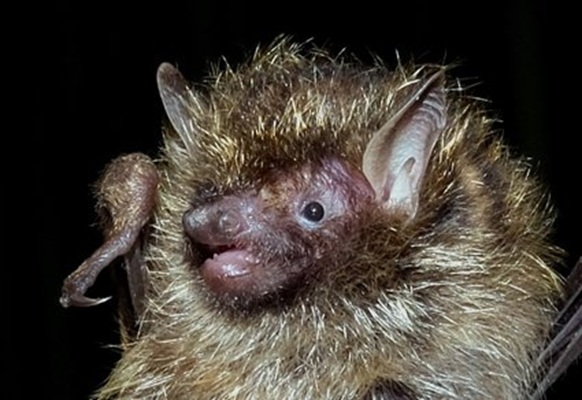Shillong: Scientists from the Zoological Survey of India (ZSI) have reported the first-ever record of the golden-haired tube-nosed bat (Harpiola isodon) in India, following its discovery in Mizoram’s Hmuifang forest.
The finding extends the known global range of this rare species westward by over 1,000 km, officials said.
Dr Uttam Saikia, a bat researcher with ZSI, came across the species during a systematic survey of Mizoram’s bat fauna.
For a detailed study, he collaborated with Dr Gabor Csorba of the Hungarian Natural History Museum, Dr Manuel Ruedi of the Natural History Museum of Geneva, and Dr Rohit Chakravarty of the Nature Conservation Foundation.
The team conducted DNA analysis of the Mizoram specimen and compared it with museum samples abroad.
Their investigation also included an older specimen collected from Sairep village in Lunglei district, preserved at ZSI Kolkata, which was confirmed to belong to the same species.
First identified in Taiwan in 2006, the golden-haired tube-nosed bat has since been reported from southern China and Vietnam.
Believed to inhabit mountain forests, scientists suggest it may also be present in suitable habitats across Laos, Cambodia, Thailand, and Myanmar.
ALSO READ: Vaibhav Suryavanshi sets new Youth ODI record for most sixes
The bat is small, with a forearm length of 32–36 mm, and is distinguished by golden-tipped fur and distinctive tube-shaped nostrils.
Dr Saikia and his team have spent over a decade studying bat fauna in the Indian Himalayas, documenting several new species and new records for India.
ZSI Director Dr Dhriti Banerjee said the discovery highlights the importance of focused research in northeast India, which falls within two global biodiversity hotspots.
“With this addition, the confirmed number of bat species in India now stands at 136,” she added.















